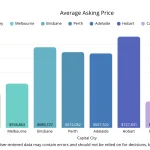What is Due Diligence in a Business Sale?

What is Due Diligence in a Business Sale?
Due diligence is the process where the buyer gets to review the business that is for sale in full detail to ensure it meets their expectations.
You may find when scrolling through businesses for sale on Bsale that limited information has been provided by the seller. This is to encourage the buyer to make contact and receive more information that is not publicly available.
Once the buyer has made an enquiry, the seller may ask them to complete an NDA so confidential information can be protected. Once returned, the seller may provide the potential buyer with additional information such as an information memorandum. This is like a sales brochure about the business. It will not provide the full picture, which is why due diligence is required.

When Can You Perform Due Diligence in a Business Sale?
Once a buyer has read the information memorandum they are encouraged to meet with the business owner and visit the site.
If they are willing, they will proceed with the sale by making a written offer. If this is accepted, a term sheet will be created outlining the expectations of each party during the due diligence process.
Once the term sheet is signed by both parties, a deposit is usually required, around 10% of the sale price. The deposit is held in a trust account by the seller's business broker or solicitor and may be returned if the buyer does not proceed with this sale. It is important you obtain financial and legal advice when buying a business as each situation is different.
Requiring a deposit before due diligence commences is often required by the seller to demonstrate a buyer's willingness to buy the business. Whilst simple due diligence may commence sooner, once you have the information memorandum, it is difficult to complete a thorough review at that stage.
Conducting due diligence is an important process for someone buying a business so it is very important for the seller to also be prepared when selling.

What Does Due Diligence Involve?
The process of due diligence allows you to asses a business sale from multiple angles. It's important to engage professionals during this process to ensure you have a thorough understanding of the business and what you will be purchasing.
Generally, a business is assessed from three angles.
1. Financial
In order for an organisation to be successful, it needs to have its finances in order. The advertised price of a business sale is often determined by its profitability.
A common way is looking at the net profit to the owner and multiplying it by a certain factor, such as 1.5x or 3x, depending on its stability. This is an extremely simplified version. You will find when speaking to a professional, such as a business broker, they will have a different method for determining an appraisal or valuation of a business. Nevertheless, it is usually centred around the financials. This is because the business sale is all about what money the buyer can make.
Here is a list of financial documents that can be reviewed during the due diligence process. Typically, a buyer will want to review a minimum of 3 years, this may vary depending on the type and size of the business sale.
- Balance Sheet
- Profit and Loss
- BAS and PAYG
- Tax Debts
- EOFY Tax Summaries
- Depreciation Schedule
- Loans and Liabilities
2. Operational
This section is all about how the organisation operates. As a buyer, you want to have a solid understanding of how the business for sale goes from sourcing products to providing a service and everything in between. To understand the true value of a business sale and to make sure it is legitimate you will need to check and review all of these items. You don’t want to buy a business and find out 3 months later the lease is ending or you didn't check if the ABN is valid!
In this section of due diligence, the buyer will review items such as;
- Lease agreements
- Licenses and registrations
- ABN, ACN, GST
- Employment agreements
- Supplier lists
- Distributor lists
- Client lists
- Training Systems
- Ownership Structure
- Franchise agreements (if applicable)
3. Assets
What does the business for sale actually own? Whilst the advertised price of a business sale is often centred around financials and how much money the organisation actually makes, assets also play a part. Depending on the type of business sale there could be thousands (or millions) of dollars tied up in the assets.
In this section of due diligence the buyer can review the following assets:
- Equipment
- Machinery
- Vehicles
- Office Equipment
- Computers and Software
- Furniture and Fittings
- Stock lists (organisations with a lot of stock, such as supermarkets for sale, will often have an advertised price as +SAV and set value, that may be pre-determined or set via a stock take at the time of the sale)
- IP, Copyrights, Trademarks
- Websites and eCommerce stores
- Property and Land Titles (If the business sale is advertised as freehold it may include a land title and dwelling)

Who Can Assist You in Due Diligence?
It is important you obtain professional advice when performing due diligence when buying a business. There are a lot of factors and information to review and you don't want to make the mistake of missing something, and paying for it after the sale has been finalised.
There are 4 types of professionals who can assist you. They all have specific areas of expertise and can help guide you in certain areas.
1. Solicitor
A commercial solicitor can help to review any legal documents such as commercial lease agreements, IP, Trademarks and Copyrights, equipment leases, employment agreements and more. They are also vital during the settlement period and reviewing the contract in the business sale to ensure it is written to benefit you, as it is prepared by the sellers' solicitor and may have unfair terms or items excluded.
2. Business Brokers
They are professionals in buying and selling a business. Anything you need to know about the process, they can assist with. Many business brokers are former owners or accountants and are educated to assist you in reviewing an opportunity. They can also help you determine if the asking price of the business sale is fair, or if there is room for negotiations. They could help save you thousands of dollars, by pointing out inconsistencies or negotiating on the price.
3. Accountant
You will probably have your own accountant, what is important is making sure they understand the process of business sales. Reviewing all the information, and finding gaps or inconsistencies is important. They will help you figure out if the business for sale is profitable as the seller claims, and what your future projections may be. They will also help review the tax liabilities and any debts. They can also assist with your personal tax, and assessing capital gains if you have recently sold another business or property.
4. Business Coach
If you plan to buy a business for sale and grow it, you should have a coach review your plans. It's a good idea to speak with a coach in your specific industry such as a hospitality coach if you are buying a cafe for sale. A coach can help you decide if this is a good business to buy or if it has issues such as equipment that's aging or low foot traffic or ideas to ramp up the marketing and increase sales.
So What Next?
Due diligence is an important part of buying a business. You need to ensure you understand exactly what you are committing to. It’s easy to just say yes, and commit to buying a business. But it’s the investigations and research into the claims the seller is making that take time and will give you a level of certainty in your purchase.
If you need assistance in your due diligence process of a business sale, please contact us and we can connect you with some business brokers, accountants or solicitors who have experience in this area.
Tags: buying a business due diligence
About the author

Vanessa Lovie-Yousaf
CEO Bsale Australia
Vanessa Lovie-Yousaf is the CEO and manager of Bsale.com.au, one of Australia’s most trusted business for sale marketplaces since 2000. With 15 ...









